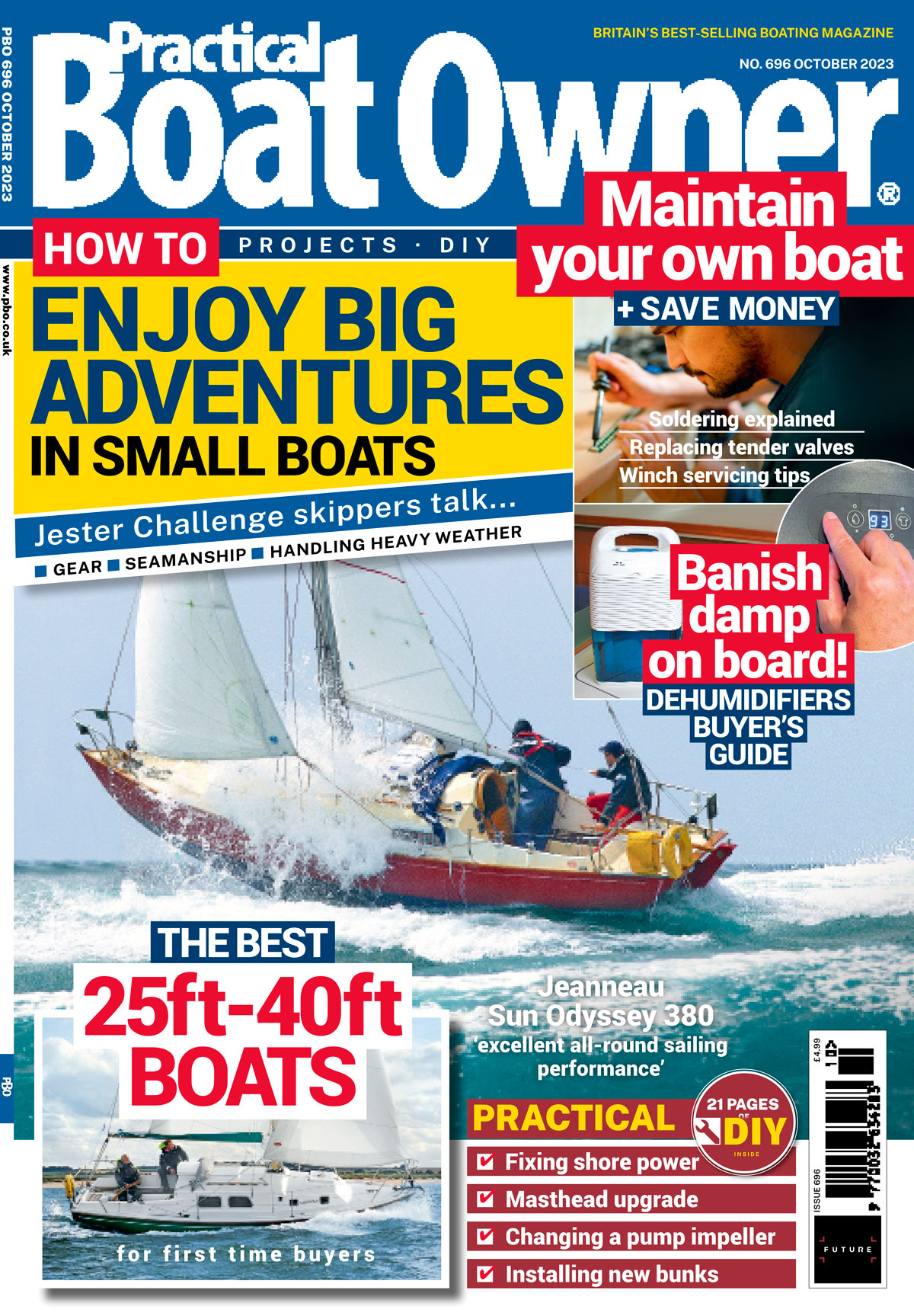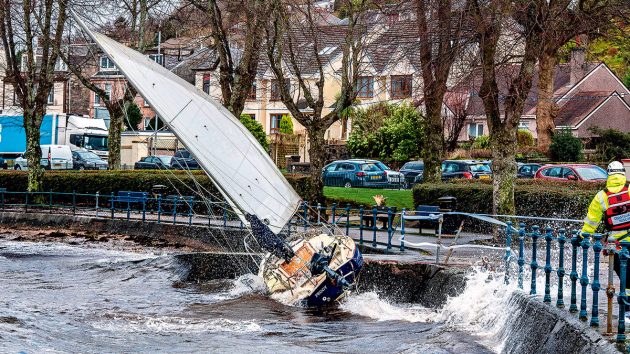Surveyor Ben Sutcliffe-Davies has advice on how to avoid the major pitfalls when contemplating restoring a boat write-off
Taking on any boat write-off is not for the faint hearted; over the years I’ve seen a good mixture of fire damaged craft from basic galley fires to inverters, batteries and gas bottles going bang!
Insurance companies regularly write off boats for a mixture of reasons that are predominantly down to the cost of rebuilding and repairing.
Sometimes it’s obvious that no matter how much is spent on repairs, the vessel won’t be safe; that’s an important point to remember.
Generally, the worst write-offs are due to grounding damage and fire damage; careful assessment is essential.
First, TAKE OFF THE ROSE TINTED SPECTACLES and then find out all you can about the boat’s background and the circumstances surrounding the damage.

Decks can appear fine following a fire below, but it’s vital to check the underside, laminate and any reinforcements for weakness
A surveyor may have inspected the vessel for the insurance company, but these reports are rarely shared.
You will need your own survey to give you an idea of any structural weaknesses and what’s entailed to rebuild the craft.
With fire damage, gelcoat will blister and laminate can be seriously weakened from resin burning away and what’s left will go brittle.
Be aware that heat in a fire within a cabin goes upwards, so items like decks may not externally have any obvious damage, but the underside, laminate and any types of reinforcement, especially foam core, could be seriously weakened.
Think carefully about what you can afford.

If the surveyor recommends you walk away from a boat, it’s probably best to listen. Credit: Geoff Moore/Dorset Media Service
When looking at a rebuilding project, be realistic about costs and factor in the financial implications of any worst case scenarios, like the need to replace the engine, rigs, sails, and mast.
Consider the market value of your vessel when you’ve finished the work; I frequently see so-called bargain boats at the end of a rebuild, which have cost more to repair than comparative craft which haven’t been written off.
Remember, the cost of repair is why insurance companies regularly decide to write vessels off.
Ask yourself, is it safe?
Before investing what could be thousands of pounds, make sure your investment is viable and will result in a safe boat at the end of the project.
Do not hesitate in getting proper advice from a marine surveyor and see if he or she is interested in being involved in periodic inspections and documenting the repairs, which will help in getting insurance for the boat. If the surveyor says don’t… do take their advice.
What an insurance company says
A spokesperson from insurers Haven Knox-Johnston has this advice:
‘When a boat has been classified as an insurance write-off and the owner intends to restore it to a seaworthy condition, several factors will arise regarding the process of reinsuring the vessel.
Haven Knox-Johnston’s ability to provide boat insurance coverage would depend on the specific circumstances of the claim and whether the vessel was originally insured with us.
Continues below…
Boat insurance – 10 essential questions to ask your insurer
Make sure you're covered
Do I need boat insurance? Expert advice for project boat owners
Here’s my advice for people looking to buy older/project boats and asking themselves: ‘Do I need boat insurance?’ Before buying…
How to choose the right project boat
How do you distinguish a real bargain boat from one that’s not worth restoring, even if it’s free? Rupert Holmes…
If a vessel has experienced a total loss, such as a gas explosion, we would require a new comprehensive dry survey and valuation to determine its insurability. The comments and assessment of the surveyor would play a crucial role in this determination.
Depending on the extent of the damage, we may also consider offering Third Party Only cover as an alternative option.
While the vessel is undergoing restoration, we might be able to offer a laid-up ashore builder’s risk policy.
This policy would provide coverage for the vessel at its market value, but it would necessitate a thorough dry survey and valuation before the vessel is relaunched.
However, it’s important to note this option is typically reserved for our existing insured clients, where we have a good understanding of the claim and the owner’s experience’.
Enjoyed reading What to consider when restoring a boat write-off? 
A subscription to Practical Boat Owner magazine costs around 40% less than the cover price.
Print and digital editions are available through Magazines Direct – where you can also find the latest deals.
PBO is packed with information to help you get the most from boat ownership – whether sail or power.
-
-
-
- Take your DIY skills to the next level with trusted advice on boat maintenance and repairs
- Impartial in-depth gear reviews
- Practical cruising tips for making the most of your time afloat
-
-







